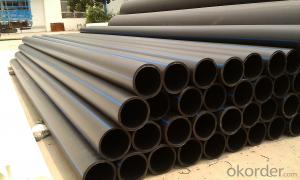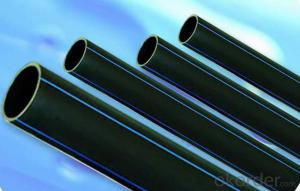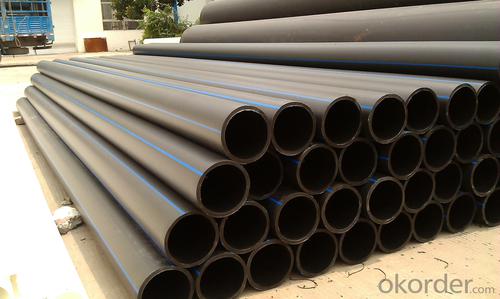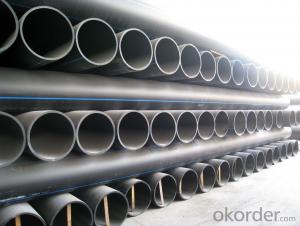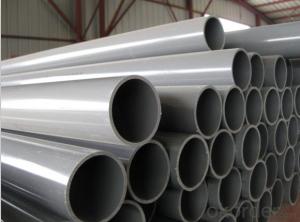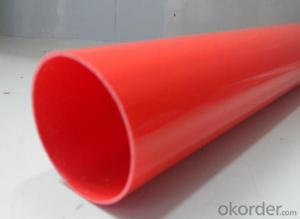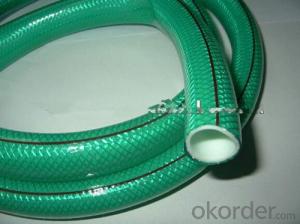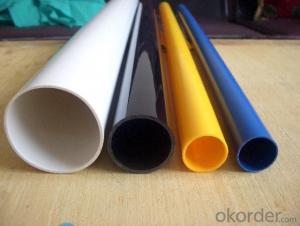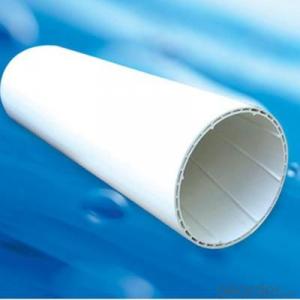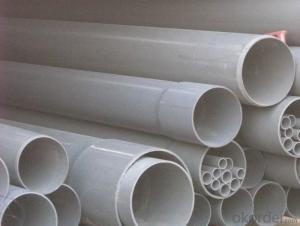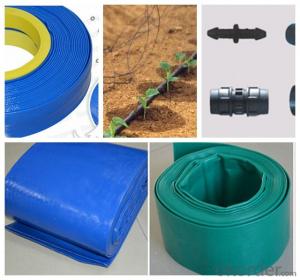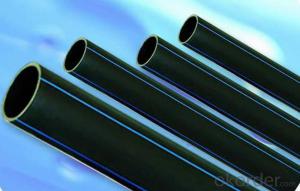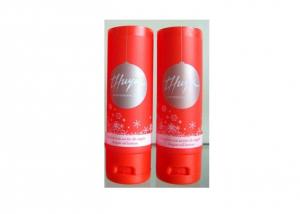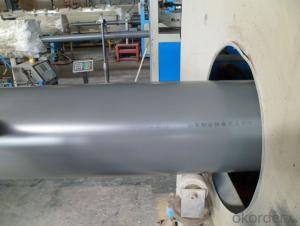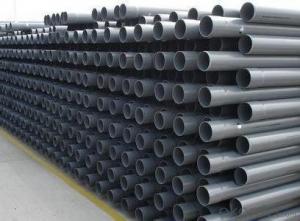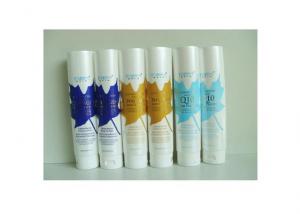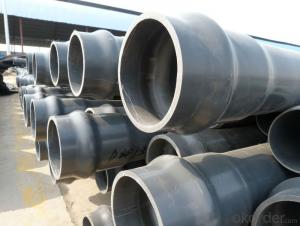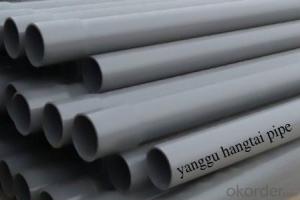Plastic Tubes HDPE Pipe ISO4427-2000 DN40
- Loading Port:
- China Main Port
- Payment Terms:
- TT OR LC
- Min Order Qty:
- -
- Supply Capability:
- -
OKorder Service Pledge
OKorder Financial Service
You Might Also Like
Physical properties[edit]
Polyethylene is a thermoplasticpolymer consisting of long hydrocarbon chains. Depending on the crystallinity and molecular weight, a melting point and glass transition may or may not be observable. The temperature at which these occur varies strongly with the type of polyethylene. For common commercial grades of medium- and high-density polyethylene the melting point is typically in the range 120 to 180 °C (248 to 356 °F). The melting point for average, commercial, low-density polyethylene is typically 105 to 115 °C (221 to 239 °F).it is transprant.
Chemical properties[edit]
Most LDPE, MDPE and HDPE grades have excellent chemical resistance, meaning that it is not attacked by strong acids or strong bases. It is also resistant to gentle oxidants and reducing agents. Polyethylene burns slowly with a blue flame having a yellow tip and gives off an odour of paraffin. The material continues burning on removal of the flame source and produces a drip.[3] Crystalline samples do not dissolve at room temperature. Polyethylene (other than cross-linked polyethylene) usually can be dissolved at elevated temperatures in aromatic hydrocarbons such as toluene or xylene, or in chlorinated solvents such as trichloroethane or trichlorobenzene.[4]
GB/T13663-2000:
| PE63管材规格 | |||||
| 公称 外径dn,mm | SDR33 | SDR26 | SDR17.6 | SDR13.6 | SDR11 |
| 公称压力 PN,Mpa | |||||
| 0.32 | 0.4 | 0.6 | 0.8 | 1.0 | |
| 公称 壁厚 | 公称 壁厚 | 公称 壁厚 | 公称 壁厚 | 公称 壁厚 | |
| 16 | 2.3 | ||||
| 20 | 2.3 | 2.3 | |||
| 25 | 2.3 | 2.3 | 2.3 | ||
| 32 | 2.3 | 2.4 | 2.9 | ||
| 40 | 2.3 | 2.3 | 3.0 | 3.7 | |
| 50 | 2.3 | 2.9 | 3.7 | 4.6 | |
| 63 | 2.3 | 2.5 | 3.6 | 4.7 | 5.8 |
| 75 | 2.3 | 2.9 | 4.3 | 5.6 | 6.8 |
| 90 | 2.8 | 3.5 | 5.1 | 6.7 | 8.2 |
| 110 | 3.4 | 4.2 | 6.3 | 8.1 | 10.0 |
| 125 | 3.9 | 4.8 | 7.1 | 9.2 | 11.4 |
| 140 | 4.3 | 5.4 | 8.0 | 10.3 | 12.7 |
| 160 | 4.9 | 6.2 | 9.1 | 11.8 | 14.6 |
| 180 | 5.5 | 6.9 | 10.2 | 13.3 | 16.4 |
| 200 | 6.2 | 7.7 | 11.4 | 14.7 | 18.2 |
| 225 | 6.9 | 8.6 | 12.8 | 16.6 | 20.5 |
| 250 | 7.7 | 9.6 | 14.2 | 18.4 | 22.7 |
| 280 | 8.6 | 10.7 | 15.9 | 20.6 | 25.4 |
| 315 | 9.7 | 12.1 | 17.9 | 23.2 | 28.6 |
| 355 | 10.9 | 13.6 | 20.1 | 26.1 | 32.2 |
| 400 | 12.3 | 15.3 | 22.7 | 29.4 | 36.3 |
| 450 | 13.8 | 17.2 | 25.5 | 33.1 | 40.9 |
| 500 | 15.3 | 19.1 | 28.3 | 36.8 | 45.4 |
| 560 | 17.2 | 21.4 | 31.7 | 41.2 | 50.8 |
| 630 | 19.3 | 24.1 | 35.7 | 46.3 | 57.2 |
- Q: I have forgotten the name of the breed altough i know it starts with sy. I just want to know if they can fit in a tube cage or will they get stuck? And what is the best breed to get if you do have a tube cage?
- Syrian hamsters, the larger breed of hamster, can outgrow the tubes and get stuck. Dwarf hamsters are better suited for those types of cages. If you're interested in a syrian hamster, a large, basic wire cage is probably a good idea. A bin cage is also a good cage to have for hamsters.
- Q: What are the advantages of using plastic tubes over other materials?
- There are several advantages of using plastic tubes over other materials. Firstly, plastic tubes are lightweight and easy to handle, making them convenient for transportation and installation. Secondly, plastic tubes are corrosion-resistant, which makes them suitable for use in various industries, including plumbing, construction, and agriculture. Additionally, plastic tubes offer excellent durability and flexibility, allowing them to withstand extreme temperatures, pressures, and impacts. Lastly, plastic tubes are cost-effective compared to other materials, making them a more affordable option for many applications.
- Q: What exactly is tubes in ears?
- earlier tubes, the accepted practitioner ought to locate out why the an infection. She could have hypersensitive reactions that require drugs to maintain her passages sparkling. My 7 year previous is on her 2d set of tubes. She had them put in via fact she have been given a great form of infections and while she did no longer have an infection, she had plenty thick fluid in her ears that she had a listening to loss. the 1st set stayed in her ears for a million year and then fell out. The fluid got here decrease back and he or she had to have the 2d set put in. Ear tubes are little disc-looking issues that save the ear canal sparkling of fluid. they're put in at a wellbeing middle below accepted anesthesia. I quite have never heard of long term problems with tubes, yet there is not any assure that they are going to stay in for an prolonged time and next surgical procedures are very achievable. talk over with the expert and notice if he recommends hypersensitive reaction attempting out first. i could in basic terms have the surgical treatment as a final motel.
- Q: where is the best place to go to buy a plastic tube (the kind you store items in?
- try ace or i know true value hardeware stores carry them we sell them on mothly specials all the time and they come in a number of sizes
- Q: A piece of plastic tubing is 19 inches long and must be divided into 6 smaller pieces each at least 2 inches long. What is the largest length of tubing possible?
- 9 in. If 5 pieces are 2 inches long, that leaves 9 inches for the last piece.
- Q: Are plastic tubes suitable for use in the mining industry?
- Yes, plastic tubes are suitable for use in the mining industry. They offer several advantages such as being lightweight, corrosion-resistant, and easy to install. Plastic tubes are commonly used for conveying water, chemicals, and other materials in mining operations.
- Q: im buying this on this link below
- Each box covers 40 sq ft. 4ft X 10ft = 40 sq ft so you will need 1 box.
- Q: a while back lets say couple of years ago i bought some sweets in a little plastic tube, they looked like little raindrops and were all different colours ... anyone who knows because its driving me insane ... cant find them... thought they werre some like limited edtion by starbust, but i think i am wrong x
- I'm not entirely sure but I know they sell Hard rock ice candies' They look like little sparkly drops, or maybe raindrops. They can come in separated pieces or all attached on a stick (Like a corndog)
- Q: What are the commonly used indoor plastic drainage pipes in the market, as well as the advantages and disadvantages?
- The general situation of the PVC pipe because the price is low, without considering the impact water quality in the cold water supply system belongs to the first pipe, and when the temperature is high, can choose polyethylene pipe or cross-linked polyethylene pipe, polypropylene pipe, polybutylene pipe.
- Q: How do plastic tubes perform in extreme cold temperatures?
- Plastic tubes generally become more brittle and prone to cracking or breaking in extreme cold temperatures.
Send your message to us
Plastic Tubes HDPE Pipe ISO4427-2000 DN40
- Loading Port:
- China Main Port
- Payment Terms:
- TT OR LC
- Min Order Qty:
- -
- Supply Capability:
- -
OKorder Service Pledge
OKorder Financial Service
Similar products
Hot products
Hot Searches
Related keywords
